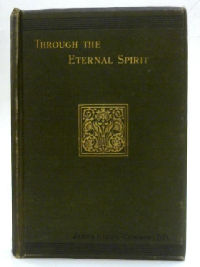J.W. Etheridges English Translation of the Peshitta.
Etheridges English Translation
John Wesley Etheridge- A Literal Translation of the Four Gospels From the Peschito, or Ancient Syriac and The Apostolical Acts and Epistles From the Peschito, or Ancient Syriac: To Which Are Added, the Remaining Epistles and The Book of Revelation, After a Later Syriac Text (1849).
John Wesley Etheridge’s translation of the Peshitta was done slightly before that of James Murdock. He originally published the Gospels in his book The Syrian Churches and later published the rest of the New Testament in a separate volume. The Etheridge translation is arguably one of the most literal translations of the Peshitta New Testament, sometimes resulting in the English not flowing very well (but not making it any less beautiful to read). Etheridge also transliterates Aramaic words (Jesus Christ is “Jeshu Meshicha”, God is “Aloha”), which is helpful if you are seeking to learn Aramaic.
This translation follows the Eastern Peshitta readings in almost every place where the Western Peshitto differs. It only goes with the Western reading three times. Until Andrew Gabriel Roth completed his Aramaic English New Testament, the Etheridge translation was the closest representative we had of the Eastern Peshitta text.

Cummings Through the Eternal Spirit: A Biblical Study on the Holy Ghost is a 25 chapter work on the Holy Spirit from 1896. NT and OT verses. Some Chapters: 4. The Spirit in the Word, 7. Pentecost: What it was, and what it did, 9. What Pentecost was for the church, 10. Pentecost in relation to the individual believer now, 11. "Baptism in the Spirit:" His being received, His "falling" on men, and other expressions. 21. Power. 23. Temples of the Holy Spirit. 315 pages.
theWord Format: Cummings Through the Eternal Spirit
PDF Format: Cummings Through the Eternal Spirit
eSword Format: Cummings Through the Eternal Spirit
MySword Format: Cummings Through the Eternal Spirit
Another thing that makes the Etheridge translation valuable is the lack of theological bias from the translator. Most translations of the Peshitta tend to be swayed in some ways by the beliefs of the translator, but John Wesley Etheridge was a very thorough and honest translator. He, as much as possible, translates in a very accurate fashion. The only real negative thing about the Etheridge translation is that he does not make the important distinction between the Aramaic words Mar (Lord) and MarYa (Lord Yahweh). I have to say that I believe the Etheridge translation to be the best translation of the Peshitta besides the AENT. Here are some sample verses from the Etheridge translation:
In the beginning was the Word, and the Word himself was with Aloha, and Aloha was the Word himself.- John 1:1
For so loved Aloha the world, as his Son, the Only-begotten, he would give, that every one who believeth in him might not perish, but have the life which is eternal.- John 3:16
For I am not ashamed of the gospel, because it is the power of Aloha for the salvation of all who believe in him, whether of the Jihudoyee first, or of the Aramoyee: for the righteousness of Aloha in it is revealed from faith to faith, as it is written, The righteous by faith shall live.- Romans 1:16-17 wikipedia.org
Etheridges English Translation
Download
Peshitta.nt (109 downloads )More modules from Early translation Category
- Daily Open Window by TAS
- Byzantine Orthodox NT (Greek)
- Boyd, James – The Authority of Scripture
- Salkinson Ginsburg Hebrew NT
- Brenton’s English Septuagint (Brenton) (1851)
- Peshitta Bible Version – Peshitta Evaluation
- American King James Version AKJV (1999)
- Metzger A Commentary on the Greek New Testament.gbk.twm
- Metzger Early Translations of the Bible.gbk.twm
- American Bible Union New Testament 1865
Advertisement
In Greek Grammars and Helps #3 I give the Bible Student several recommendations in Greek Study, grammars to check out.
